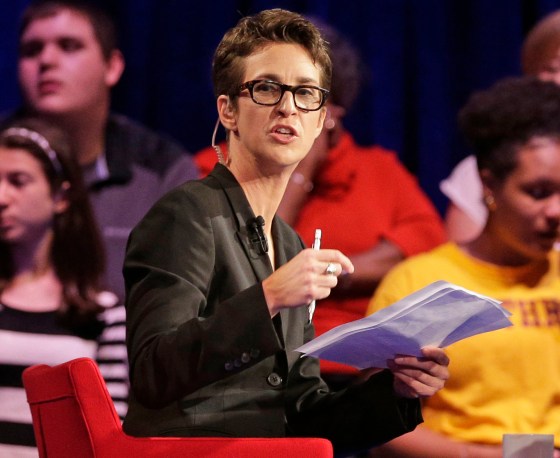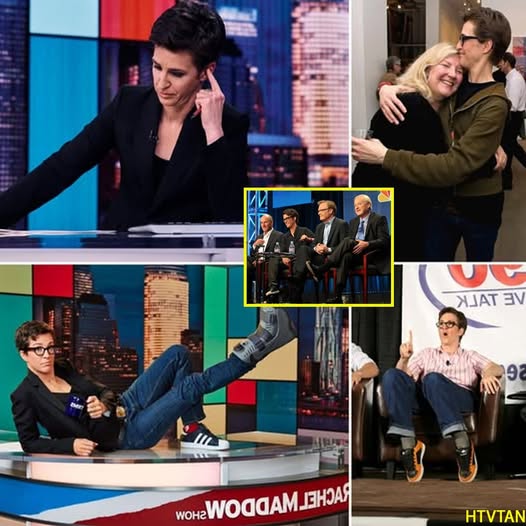Before she became the first openly lesbian anchor in U.S. prime-time news, Rachel Maddow faced challenges that many never saw coming. In an early interview on NBC, she experienced firsthand the struggles that come with being a trailblazer in the television industry, particularly as a proud member of the LGBTQ+ community.
It was during this pivotal moment in her career that Maddow found herself face-to-face with a male panelist whose inappropriate gesture crossed the line, challenging her personal dignity. But this wasn’t a moment where Maddow shrank in the face of discrimination. Instead, she fired back, cementing her reputation as a bold and fearless personality—one that would go on to dominate prime-time television.
This defining interaction wasn’t just an isolated incident—it was a crucial turning point that showed the world who Rachel Maddow truly was: someone who wouldn’t allow anyone to belittle her or undermine her identity. The consequence of that moment would have a ripple effect throughout her career, sending a clear message about the importance of standing up against injustice.
The Inappropriate Gesture That Sparked the Showdown
It all began during an NBC interview where Maddow was invited to speak about her work and her advocacy for LGBTQ+ rights. However, things quickly took a troubling turn when one male panelist made a suggestive gesture that was completely out of line. The nature of the gesture was both demeaning and dismissive, aiming to belittle her in a subtle but pointed way.
While Maddow could have chosen to ignore the behavior and press on, her reaction was anything but passive. In that moment, she did something that few would have expected: she fought back, unapologetically asserting her worth and calling out the inappropriate action for what it was.
With calm but steely resolve, Maddow confronted the panelist, making it clear that his behavior was unacceptable. “If you have something to say, you can say it directly,” she told him firmly. The words were sharp and direct, leaving no room for ambiguity. She wasn’t going to let anyone treat her as less than what she was—a respected professional and a proud lesbian.


